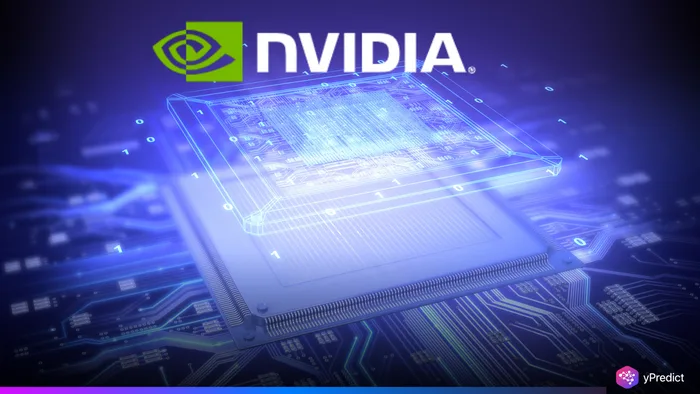
Nvidia is preparing to release a new AI chip for China that could reshape the region’s artificial intelligence market. The chip, based on the firm’s cutting-edge Blackwell architecture, is expected to outperform the H20 model currently permitted under US trade restrictions. Industry insiders say Nvidia may deliver test samples to Chinese clients as early as next month.
This move comes at a delicate moment for Nvidia, as Washington maintains strict control over chip exports to China. While US President Donald Trump hinted that more advanced chips could eventually reach Chinese buyers, regulatory uncertainty still hangs over the company’s plans. Nvidia is pushing ahead to balance compliance with American rules while protecting its long-term presence in the China AI market.
Why Nvidia needs a new China-focused chip
China contributed 13% of Nvidia’s revenue last year, making it vital despite rising geopolitical barriers. Nvidia launched the H20 chip under the older Hopper architecture, received approval in July, and then saw sales suddenly suspended in April. This disruption exposed Nvidia to domestic rivals like Huawei, which accelerated chip production and gained strength in raw computing power.
Nvidia introduced a new AI chip for China to keep developers engaged with its ecosystem. Nvidia’s software tools give it a clear edge over Chinese competitors, ensuring buyers continue choosing Nvidia even when hardware looks similar.
Inside the new Blackwell-powered B30A chip
Sources say the new chip, tentatively named B30A, will use a single-die design. This approach allows all major components to be fabricated on one silicon piece, unlike dual-die setups used in more powerful accelerators like the B300. The B30A will reportedly offer half the computing strength of the flagship B300 but still surpass the H20 in performance.
The B30A is also expected to feature high-bandwidth memory and Nvidia’s NVLink technology, providing rapid communication between processors. These specifications would strengthen its position as a mid-tier solution, giving Chinese companies a stronger alternative within the restrictions imposed by the US government.
US politics and regulatory challenges
Nvidia’s China strategy now faces strong political headwinds as technology advances. Both Democratic and Republican lawmakers oppose Beijing accessing advanced chips, even redesigned ones. Lawmakers worry that Chinese firms could accelerate AI breakthroughs and weaken America’s strategic edge.
Trump recently suggested China might get chips with 30%–50% lower performance than U.S. versions, calling the H20 “obsolete.” Uncertainty remains over whether Nvidia’s new AI chip meets these limits. The Blackwell architecture makes the B30A stronger by design, which could trigger more scrutiny in Washington.
Competition with Huawei and local players
While US restrictions limit Nvidia’s reach, Huawei has emerged as a credible rival. Reports suggest its latest chips now rival Nvidia in raw performance, though they still lag in critical areas such as software ecosystems and memory bandwidth. Analysts say that if Nvidia cannot maintain consistent sales, Chinese developers could pivot fully toward Huawei.
For Nvidia, keeping its foothold in the China AI market is vital. By offering scaled versions of its technology, it ensures developers remain engaged with its ecosystem, preventing Huawei from dominating both hardware and software integration.
Additional China-specific chips on the horizon
Beyond the B30A, Nvidia is also preparing another China-specific chip focused on AI inference tasks. Dubbed the RTX6000D, this chip will sell for less than the H20 and comes with lighter specifications. It uses GDDR memory and caps its bandwidth just below US restriction thresholds. Shipments of the RTX6000D are expected to begin in September.
This dual approach highlights Nvidia’s strategy: provide enough computing power to satisfy Chinese demand, while ensuring products remain compliant with evolving US export rules.
What this means for Nvidia and the global AI race
Nvidia’s development of a new AI chip for China signals how crucial the market remains despite growing trade tensions. The company is betting that carefully balanced performance, combined with its strong software ecosystem, can prevent Chinese firms from completely shifting to domestic alternatives.
But the outlook remains uncertain. Approval will ultimately depend on shifting US policies, ongoing trade disputes, and the degree to which Washington fears technology leakage. Nvidia, meanwhile, continues to walk a fine line between compliance and competition, reflecting the larger challenges of doing business in today’s fractured technology landscape.






